Books to Read When Going to Germany
G ermany, land of Dichter und Denker (poets and thinkers), has produced some of the earth'due south finest literature, though its literary scene didn't really get going until the 18th century with heavyweight figures such every bit Goethe and Schiller. For modern readers curious about the country, the 150 years post-obit unification in 1871 are of near interest. Since condign a mod nation country, Deutschland has seen intense industrialisation, 2 world wars, nazism and communism, the ignominy of partition and the joy of reunification. Given this history, there are different Germanys to read nigh, and I have compiled this list with that in heed. Every bit elsewhere, until the postwar era almost high-contour books are past white males, but the proportion of female and BAME voices has increased since reunification, and is reflected in my more recent choices.
Buddenbrooks by Thomas Mann
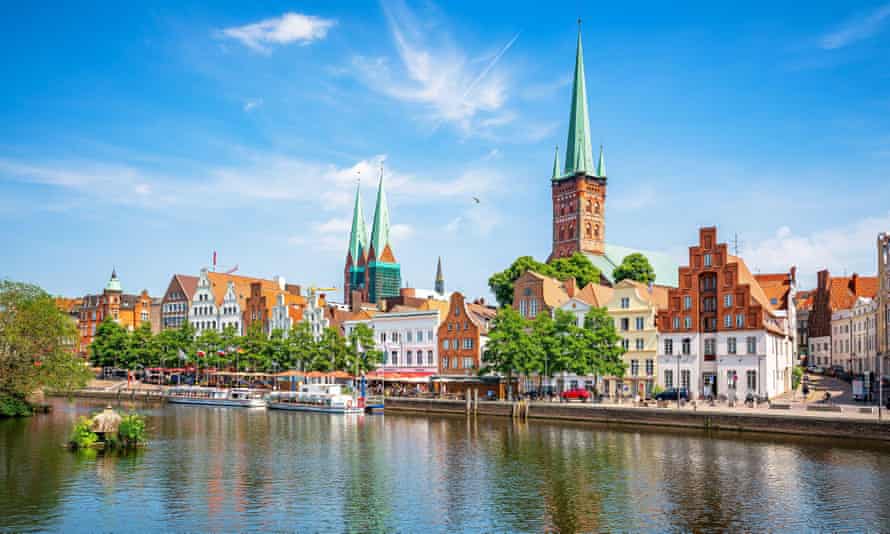
Ane of the finest novels to characterise 19th-century Germany, Buddenbrooks was published in 1901, when Mann was 25. Over a k or so pages, this epic family relate takes place in the north of the state, drawing heavily on Mann's life in the Hanseatic city of Lübeck, near the Baltic coast. Mirroring, to some extent, his own struggle to fit into his bourgeois family as an artist, it portrays the decline of a wealthy German merchant family over iv generations as they face modernity, irresolute mores and, somewhen, bankruptcy. The lifestyles and attitudes of the period are evoked through the records of births and marriages, divorces and deaths. The book won Isle of man the Nobel prize for literature in 1929.
Berlin Alexanderplatz by Alfred Döblin
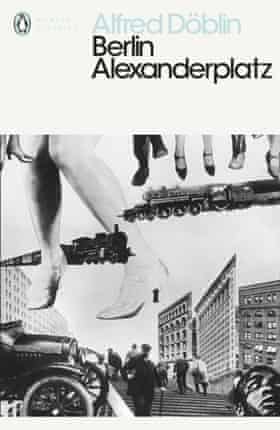
Many books have been written well-nigh the depressions and debaucheries of the Weimar demi-monde, amid them Vicki Baum's Grand Hotel, Christopher Isherwood'south Adieu to Berlin and Ernst Haffner's Blood Brothers. Only none capture the modern aspect of the times meliorate than Döblin'southward masterpiece. This is the story of quondam cement worker and small-scale-time crook Franz Biberkopf as he is released from prison into the kaleidoscopic capital of the 1920s. Influenced by modernists such as James Joyce, Döblin employs stream-of-consciousness to capture the speed, confusion and anonymity of modern city life, and splices in paper articles, songs and speeches for practiced measure out. Set in 1929, the book also features the increasingly minatory presence of the Nazis. Adjusted twice for the screen: as a 1931 motion picture by Piel Jutzi, and as a German television series in 1980 by Rainer Werner Fassbinder – it's arguably best read in Michael Hofmann's polychromatic 2018 translation.
Lonely In Berlin past Hans Fallada
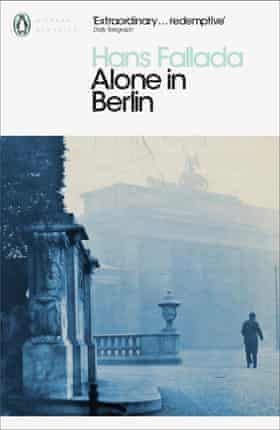
Fallada's novel – published in 1947 as Jeder stirbt für sich allein (Every Man Dies Alone) – portrays the intense, fraught atmosphere of Nazi Berlin. It was the first novel (by a High german author) to look at local resistance to the National Socialists and is based on the true story of a working-class couple, the Hampels, which was unearthed from Gestapo files and handed to Fallada by the Soviets. The Hampels (the Quangels in the book) aren't proactively against the Nazis until 1940, when their son is killed while fighting in France. They and then begin a easygoing only persistent campaign of writing bearding postcards and leaflets, leaving them in postboxes and stairwells around their neighbourhood, and advising people to turn against the regime. The volume depicts everyday life as the war rages and the terrifying grip of the National Socialiststightens on the city. The pair were eventually betrayed, arrested and executed, but cheers to Fallada their story lives on.
The Can Drum by Günter Grass

Postwar Federal republic of germany was all the same in shock – and an atrocious lot of denial – in the 1950s. Then when The Tin Drum was published in 1959 – looking at the war and its aftermath through the eyes of its notoriously unreliable narrator Oskar Matzerath, a paranoid dwarf living in an asylum – it landed similar a bombshell. Set in Grass's hometown of Danzig (now Gdansk in Poland) and the wider region of Eastern Pomerania, which had been annexed by Nazi Germany, the novel is by turns surreal, grotesque, poetic and cogitating, its subtext a loud shout against the complacency of the "economic miracle" years and their lack of moral responsibility for the contempo past. It was turned into a film in 1979 past director Volker Schlöndorff, which won the Palme d'Or in Cannes and an Oscar for best foreign language flick.
They Divided the Sky by Christa Wolf
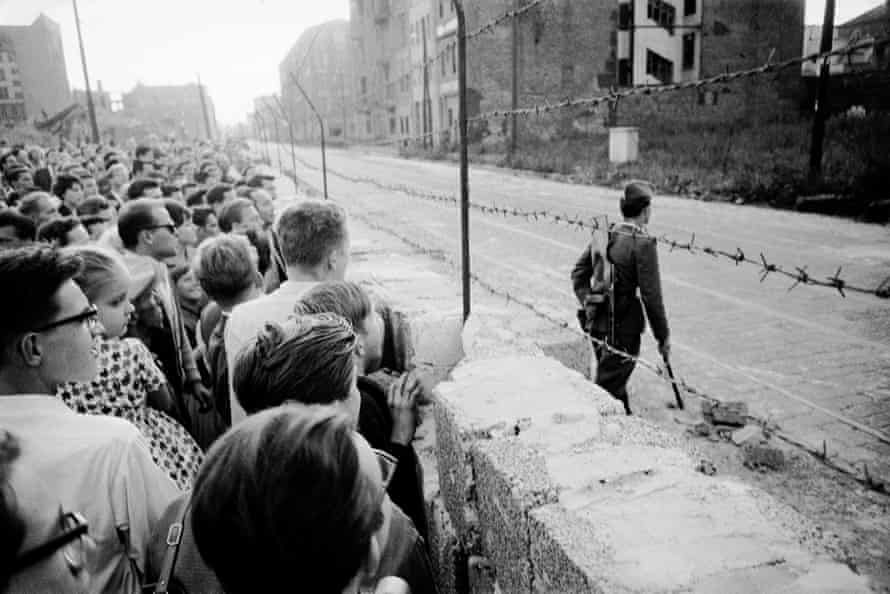
This 1963 debut novel established Wolf'southward reputation in E German language literature. Gear up during 1961, when structure of the Berlin Wall began, the tale is based around two lovers separated by information technology: Rita Seidel, a woman in her early 20s who, like the author, generally supports the values of the "antifascist" German democratic republic, and Manfred Herrfurth, a chemist who settles in the west. Although the Wall is non specifically mentioned in the novel, the volume is saturated with the atmosphere of the newly partitioned urban center. Though Wolf would go along to write works that were much more disquisitional of the regime, They Divided the Sky doesn't shy away from exposing the cracks and corruption in the communist system.
The Bridge of the Golden Horn by Emine Sevgi Özdamar
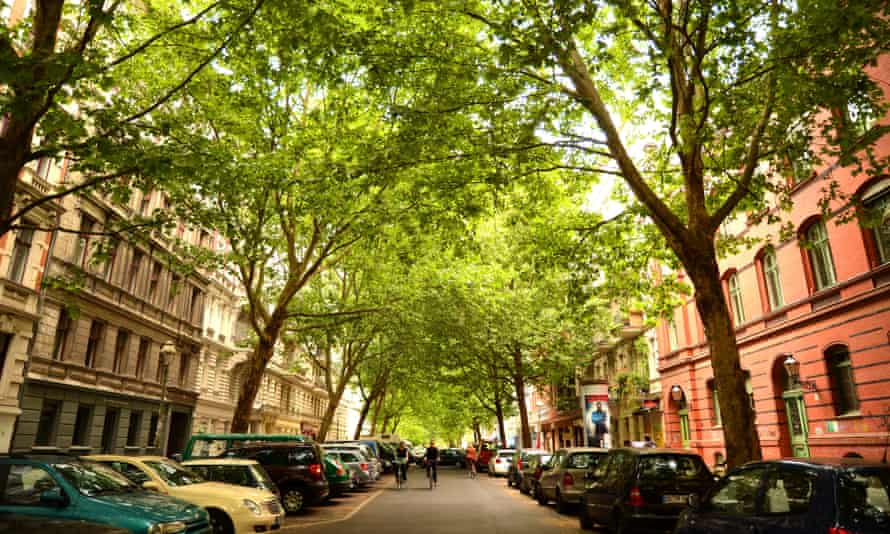
The second book of a trilogy by Turkish-German writer, thespian and managing director Sevgi Özdamar, this semi-autobiographical work looks at life in Germany from the perspective of a teenage gastarbeiter (guest worker) in the 1960s and 70s. The narrator, who has left Turkey having lied about her age, learns German while working in menial jobs to earn money for drama school. A sepia-toned snapshot of W Berlin, the book mostly centres around Kreuzberg, a hub for Turkish immigrants, and features local landmarks, such as the bombed-out Anhalter Bahnhof and the Hebbel Theatre, both of which are still continuing. It also focuses on artistically minded socialists and students, the occasional fascist exile from Greece, and real-life events similar the shooting of Benno Ohnesorg by a policeman at a protest march in 1967, an outrage that sparked the left-wing German educatee motility. The second part of the book takes in a parallel political life in Turkey.
Why We Took the Car ('Tschick') by Wolfgang Herrndorf
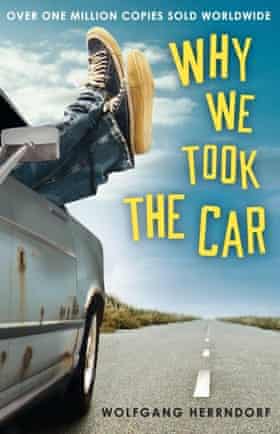
An idiosyncratic road trip novel through the somewhat unlikely terrain of Brandenburg (the country which surrounds Berlin), this novel is likewise a tender and lighthearted coming-of-age story of two outsider schoolboys. The boys are chalk and cheese: Maik Klingenberg, offspring of a heavy-drinking female parent and philandering father who takes off with his mistress, and Andrej Tschichatschow, AKA Tschick, a surly Russian immigrant who comes to schoolhouse smelling of vodka and doesn't balk at a bit of petty crime. When the summer holidays arrive and the pair oasis't been invited to whatsoever parties, they take off in a Lada that Tschick has "borrowed", with no destination in mind. Most all of the people they meet are decent and kind, if sometimes a little quirky – the message is that you don't have to travel far to have the adventure of a lifetime. Information technology was fabricated into a fine movie past Fatih Akin in 2016.
Visitation by Jenny Erpenbeck
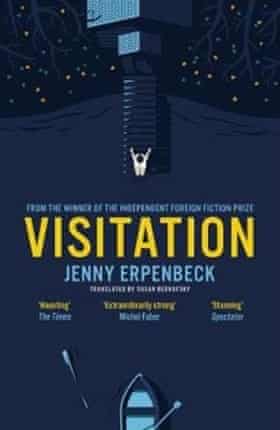
One of Frg'south most talked about contemporary talents, Erpenbeck'south Visitation (Heimsuchung) reconstructs 100 years of High german history through events in a lakeside house in Brandenburg. By chronicling the intersecting lives of 3 generations who lived in the house, , Erpenbeck creates an intimate way of bringing the century to life, with its excesses of insanity and tragedy, hopes and reconciliations. The lives come up and continue with the ideologies, with the only abiding the silent gardener who provides soothing breaks between all the personal upheavals. This is no accident: forth with a dramatic prologue depicting the prehistoric creation of the lake, the point near nature's persistence and indifference in the face of man events is clear.
Bricks and Mortar past Clemens Meyer
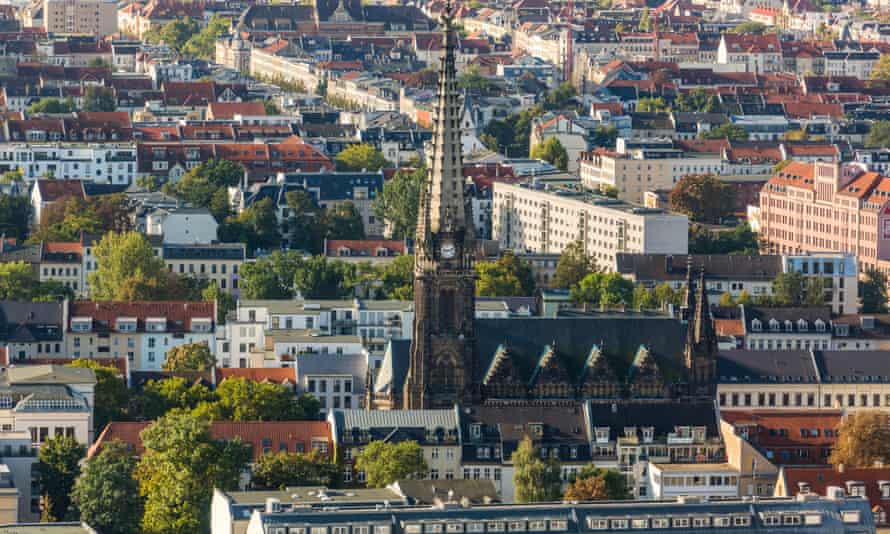
Meyer's novel takes as its discipline the world of prostitution and drugs following the fall of the communist regime. Set in Leipzig, Meyer playfully blends reportage with impressionistic, dreamlike and non-linear styles, presenting his dark and frequently hard-striking tale via a kaleidoscope of characters, from onetime DJs and addicts to traffickers and sex workers. Making sure to zoom out far enough to bear witness the influence of globalisation, and implicating policemen and politicians along the way, the story tells how the sexual practice trade went from a forbidden entity in East Frg to a legal and sprawling operation under capitalism. Though Meyer is conscientious to eschew sentimentality and easy moralising, there is plenty here to be heartbroken about.
This House is Mine by Dörte Hansen
Something of a surprise hit, this 2015 novel is set in a rural fruit-picking area near Hamburg. The tale spans seventy years and begins with a family of aristocratic refugees from East Prussia arriving at a run-down farmhouse in 1945 to start their lives anew. As well as interactions with others in the remote hamlet, a new generation of the same family arrive several decades afterwards, this time fleeing urban center life in Hamburg. Though different in terms of temperament and globe view, the two main women – Vera and her niece, Anna – manage to find common basis and a kind of healing. Hansen'southward narration, wonderful dialogue and nonlinear storyline keep the reader hooked, and the themes (from physical deprivations and inter-family conflicts, to community and the concept of home) are applicative to the current European refugee crisis, lending the novel not a little contemporary relevance.
Source: https://www.theguardian.com/travel/2020/jul/15/10-best-novels-set-in-germany-that-will-take-you-there
0 Response to "Books to Read When Going to Germany"
Post a Comment